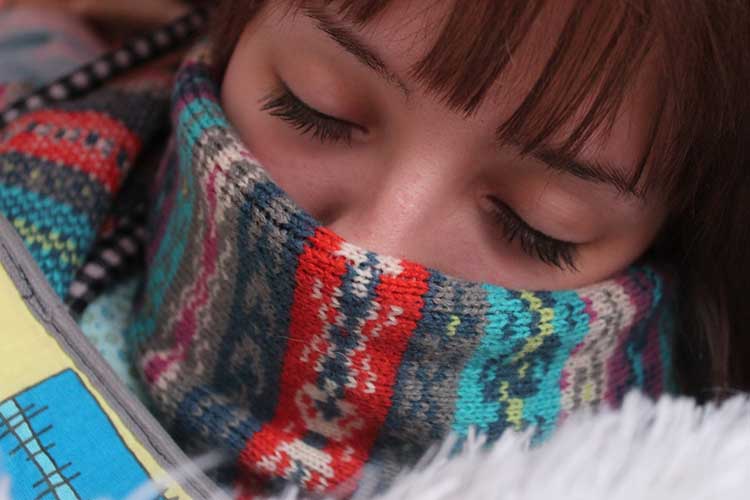2. Fever/chills
After coming in contact with the Epstein-Barr virus and symptoms begin to manifest, your fever should only last several days and then gradually get better. A fever over 101.5 is a symptom of your body fighting off an infection. Your fever is caused by a chemical called pyrogens. Pyrogens are produced by white blood cells in order to activate other white blood cells to help fight against infections.
The chemicals pyrogen can also bind to certain receptors in the brain, causing your body temperature to rise. Chills often coincide with a fever. The chills are the result of your body trying to warm its self. Once the receptors in your brain are activated by the pyrogen chemicals, your brain sets a new temperature for your body and your body attempts to meet this request. Taking an aspirin will help to reduce the fever.


